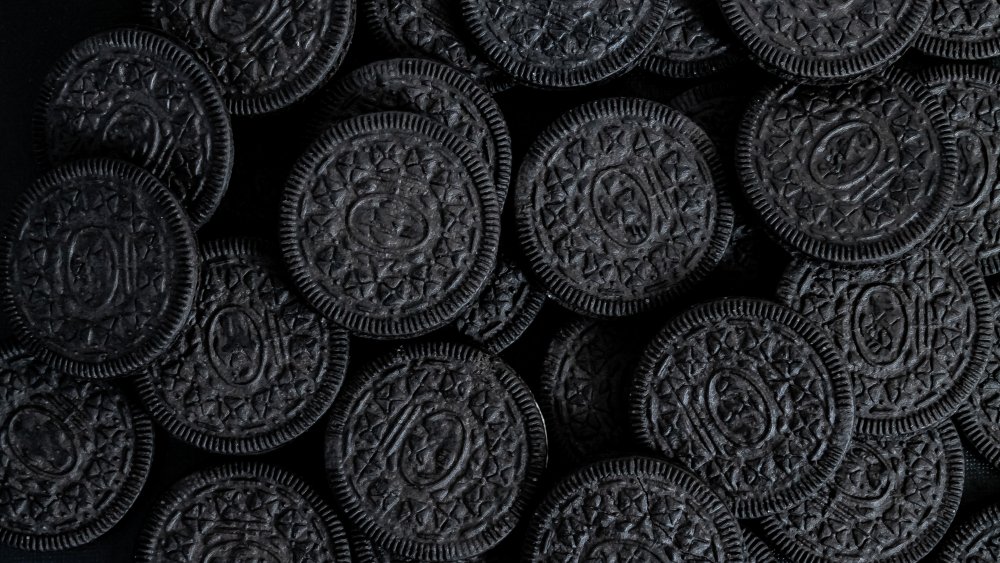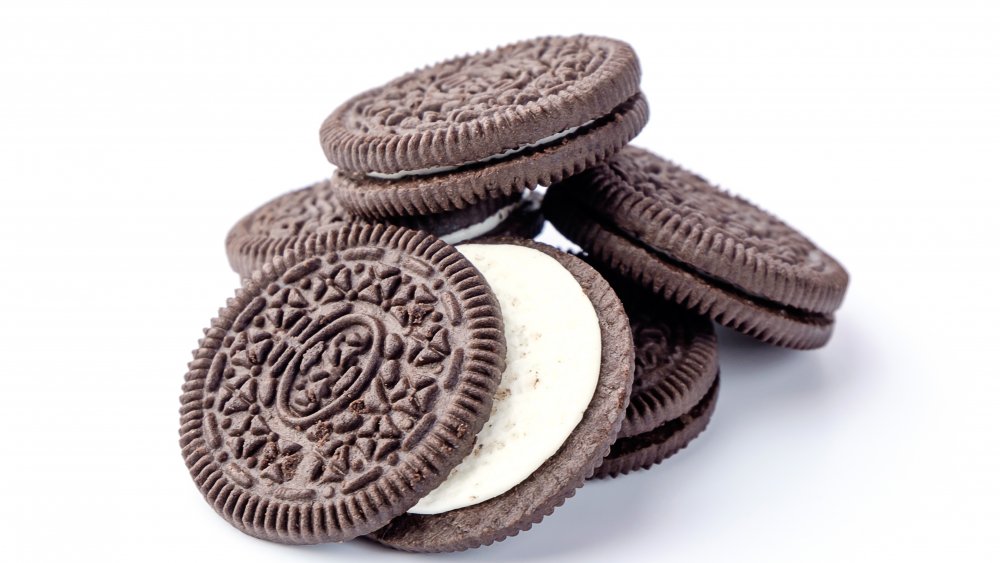The Myth About Oreos You Need To Stop Believing
Oreos are loved by many for their combination of delicious chocolate wafers with a sweet cream center. Whether you dunk them in milk or prefer to simply relish the cookies on their own, it's likely you've come across these treats at some point in your life and been curious about them. Turns out, there's a lot more to Oreo cookies than you may have previously thought. According to Insider, these cookies go all the way back to 1912, when they were first introduced by the National Biscuit Company (Nabisco). In fact, Oreo cookies were actually first launched alongside two other treats, Mother Goose Biscuit and Veronese Biscuits. Well, only one made it through the years and survived — no prizes for guessing which one.
As explained by the Smithsonian Magazine, Oreo cookies are so iconic that a section of Ninth Avenue in New York was actually called "Oreo Way" as a tribute to the brand. Oreos continue to remain rather popular, and are considered one of the best-selling cookies in the U.S. Another interesting tidbit about the treat? The Oreo website addresses one doubt which has plagued many fans for years: is the wafer cookie black or brown? The official response is no response. "We do not have a color assigned to the cookie portion of an Oreo."
Depending on who you ask, Oreos are sadly not vegan
For years, there's been a false rumor circulating around that Oreo cookies are vegan. While technically correct, because the ingredients have no animal products in them, the cookies still would not be considered vegan by some for one simple reason, which the brand has addressed on its UK website. If you follow a very strict vegan diet, "Oreo have milk as cross contact and therefore they are not suitable for vegans," the company's response reads.
What does this mean? Well basically, Oreos have no added milk in them, but they may contain very small amounts of dairy on account of being in close proximity with other products manufactured in the premises. This is not necessary going to happen, but it is a possibility. For some vegans, this chance of milk cross-contamination is no biggie, but for others it's a total deal breaker. Perhaps you'd like to make your own 100 percent vegan version of the cookies instead? We suggest this recipe from Gretchen's Vegan Bakery.

